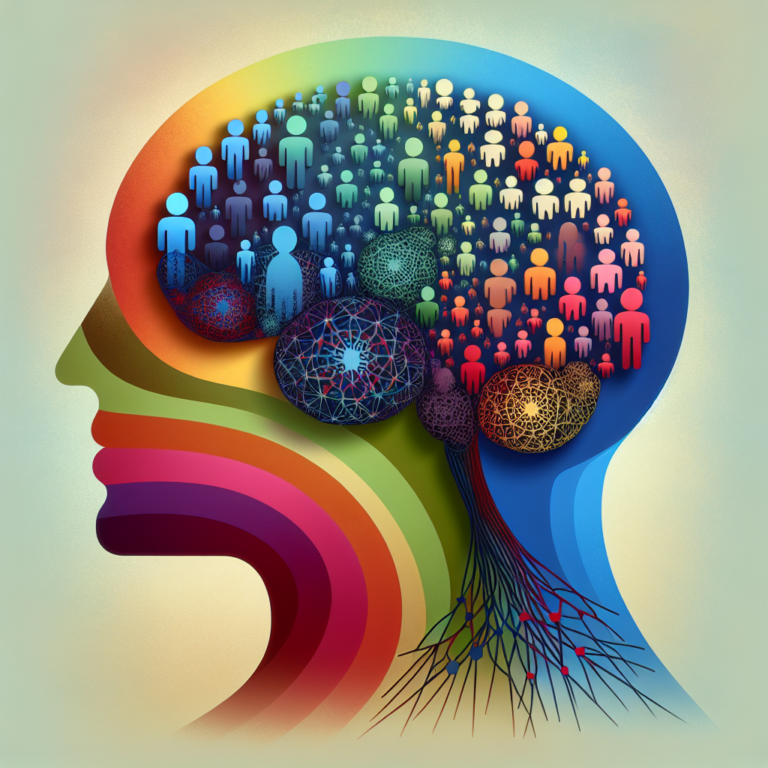
Introduction
Imagine a world where mental agility remains intact well into old age—a realm where cognitive decline is but a myth. As we venture through life, the notion of deteriorating mental faculties often looms large, instilling fear and uncertainty in many. Understanding Cognitive Decline: Unraveling the Myths and Realities is a journey into a multidimensional phenomenon that affects millions globally. It is essential to demystify this topic to empower individuals and families facing potential challenges associated with aging and cognitive health.
In this comprehensive guide, we will dive deep, separating fact from fiction, and provide insights that could not only enhance individual understanding but also instill a sense of hope and proactive empowerment.
The Spectrum of Cognitive Decline
What is Cognitive Decline?
Cognitive decline refers to the gradual loss of cognitive abilities such as memory, reasoning, and thinking skills. This decline could range from mild cognitive impairment (MCI) to severe conditions like dementia or Alzheimer’s disease. Importantly, cognitive decline is often viewed through a narrow lens, where it’s predominantly linked to aging.
Age vs. Cognitive Health
While age is a significant factor, it’s crucial to understand that cognitive decline is not an inevitable outcome of aging. Research shows that lifestyle choices, genetics, and environmental factors play a critical role. Here’s a quick breakdown:
| Age Group | Cognitive Change |
|---|---|
| 20s to 30s | Stable cognitive performance; peak brain activity |
| 40s to 50s | Slight decline in specific areas (e.g., processing speed) |
| 60s and above | Increased risk of significant decline, but not universal |
Case Study: The Resilient Brain
Consider the case of Mr. Thompson, a vibrant 75-year-old who participates in various cognitive games and maintains an active social life. Despite his age, his cognitive assessments place him in the "above average" category. This case illustrates that proactive engagement—both mentally and socially—can significantly impact cognitive health.
The Myths Surrounding Cognitive Decline
Myth 1: Cognitive Decline is Inevitable
One of the most pervasive myths is the belief that cognitive decline is an unavoidable part of aging. However, many individuals maintain high cognitive functioning well into their senior years. Factors such as education, social interaction, and a healthy lifestyle can contribute to cognitive resilience.
Myth 2: Cognitive Decline Equals Dementia
While cognitive decline can lead to dementia, it doesn’t always. MCI, for example, can exist without progressing to dementia. Recognizing these distinctions is crucial for both individuals and caregivers.
Myth 3: Mental Exercises Alone Can Prevent Decline
Though cognitive activities such as puzzles, reading, and learning new skills can bolster brain health, they must be complemented by physical exercise, a balanced diet, and social networking to maximize their benefits.
Myth 4: Only Seniors are Affected
Cognitive decline is often mistakenly believed to only affect the elderly. In reality, younger adults can experience cognitive issues due to stress, anxiety, or even nutritional deficiencies. Recognizing early signs across all age groups is essential for timely intervention.
Analysis of Myths
Addressing these myths is crucial for proactive mental health management. Greater awareness and education can empower individuals, allowing them to take charge of their cognitive health rather than succumbing to fears of decline.
Factors Influencing Cognitive Decline
Genetic Predisposition
Genetics undoubtedly play a role, with certain genes linked to higher risks for Alzheimer’s and other dementias. However, genetics are not destiny; lifestyle factors can mitigate risks significantly.
Lifestyle Choices
| Lifestyle Factor | Impact on Cognitive Health |
|---|---|
| Physical Activity | Boosts blood circulation and neuron health |
| Diet | A balanced diet rich in antioxidants and omega-3 fatty acids supports brain function |
| Social Engagement | Reduces isolation, which is a significant risk factor for cognitive decline |
Consider Sarah, a middle-aged woman with a family history of dementia, who made significant lifestyle changes by incorporating regular exercise and a Mediterranean diet. After three years, her cognitive health assessments showed remarkable improvement, emphasizing lifestyle’s pivotal role.
The Importance of Early Detection
Recognizing the Signs
Understanding cognitive decline involves recognizing early signs such as:
- Memory lapses
- Difficulty concentrating
- Changes in mood or personality
Early detection is vital for intervention, granting individuals the opportunity to adopt strategies to combat decline.
Tools for Assessment
Several tools are available for assessing cognitive health, including:
- Mini-Mental State Examination (MMSE)
- Montreal Cognitive Assessment (MoCA)
These assessments not only serve as baseline evaluations but also help track changes over time.
Strategies for Cognitive Wellness
Nutrition for the Brain
A nutrient-dense diet is essential. Focus on:
- Whole grains: Boosts brain function and energy levels.
- Fruits and vegetables: Rich in antioxidants to protect brain cells.
- Omega-3 fatty acids: Found in fish, they play a critical role in cognitive function.
Physical Activity
Regular physical activity increases blood flow to the brain. Studies indicate that aerobic activities, such as walking or dancing, are particularly beneficial.
Social Connections
Engaging in social activities boosts cognitive engagement. Consider organizing routine family gatherings or joining local clubs to foster community connections.
Mental Challenges
Engaging with puzzles, learning a musical instrument, or taking up a new hobby can stimulate the brain and improve cognitive reserve.
Case Study: The Power of Community
Meet the Golden Years: a community group for seniors that meets bi-weekly to engage in various activities. A study showed that members had slower cognitive decline rates compared to isolated seniors, reinforcing the importance of social engagement and community.
Conclusion
As we journey through life, cognitive decline can appear as a formidable shadow. However, by Understanding Cognitive Decline: Unraveling the Myths and Realities, we uncover opportunities for empowerment, growth, and resilience against possible cognitive challenges. By separating myths from realities, promoting a proactive approach to cognitive health, and embracing lifestyle changes, individuals can not only enhance their cognitive wellbeing but also enjoy a fulfilling, active life.
Take charge of your cognitive health today—every small change can lead to significant improvements.
FAQs
1. What are early signs of cognitive decline?
Signs may include forgetfulness, difficulty concentrating, changes in problem-solving skills, and mood swings.
2. Can cognitive decline be reversed?
While some aspects can improve with lifestyle changes, severe cognitive impairments may not be entirely reversible. Early intervention can slow the progression.
3. How does diet affect cognitive health?
A balanced diet rich in fruits, vegetables, omega-3s, and antioxidants can enhance cognitive function and reduce decline risks.
4. Are there specific exercises to improve cognitive abilities?
Yes! Activities like puzzles, reading, or even learning a new language can significantly boost brain health.
5. How important is social interaction for cognitive wellness?
Extremely! Social engagement reduces feelings of isolation and promotes cognitive stimulation, enhancing overall brain health.
By actively participating in cognitive wellness, we can defy the myths surrounding cognitive decline and embrace a vibrant, fulfilling life at any age. Revisit this guide whenever you need a reminder of the empowering perspective we can adopt about cognitive health.















